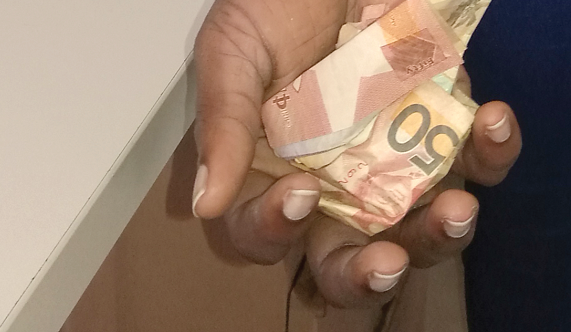
Tribulations of Ghana cedi
Ten years after the retirement of a sportsman, corporate executive, or even an elected or appointed public official, he or she may hardly be remembered.
In a fluid society where new developments are always replacing old ones, such tendency is inevitable – people simply remember what is relevant today and forget what became irrelevant yesterday.
Advertisement
But this is not the case with the Ghanaian cedi. Ten years after the national currency was redenominated and re-christened, the name of the old currency still hold sway in many business transactions.
Many Ghanaians are more comfortable quoting figures in the old currency than the new currency.
Analysts and social commentators are not sure about the main reason for this rather curious habit but one thing is sure about their reaction to it – bemused.
Mr Daniel Amartey Anim of the Policy Initiative for Economic Development said there had not been enough education on the conversion rate.
“We have a large semi-literate and highly conservative society and so our traders tend to prefer quoting the old currency for easier understanding”, he said.
Avoiding the maths
One definite reason for the situation though is that in a country where mathematics is not a cherished subject for many people, introducing a new re-denominated currency that involves reducing figures to decimal points was bound to cause problems.
This, Mr Amartey Anim agrees and said, this will take time, patience and continuous education for traders in the market centres.
For instance, it is difficult for many people to convert 45,000 cedis of the old currency to GHc4.50 in the new currency. It is even worse trying to convert 45,500 cedis in the old currency to GHc4.55 in the new currency.
After 10 years of redenomination, that problem does not seem to succumb to any circumstance.
Indeed, this was why some people, having anticipated the impending problem, had argued at the time that only three zeros should be removed rather than four in order to simplify the conversion.
This meant that, 45,000 cedis would have simply become GHc45 and 5,000 cedis, 2000 cedis and 1000 cedis would simply become GHc5, GHc2 and GHc1, respectively.
However, it appears the government and the Bank of Ghana were determined to create a redenominated currency that was stronger than the US dollar and this took precedence over the simplicity of conversion.
Inflation and conversion
Subsequent inflation since the redenomination has, however, made the conversion simpler by greatly reducing the relevance of the Ghanaian pesewa.
Most goods on sale are now quoted either strictly in cedis or in pesewas. However, the use of the old denomination for price quotes had already taken root.
Sheer mischief also plays a role. Politicians in particular are fond of quoting monetary figures in the old denomination when it suits them to make a case look great or grave. Thus, opposition politicians use it, for instance, to emphasise how much the government in power has squandered, while those in government use it to emphasise how much they have spent on a good cause.
In this way, a GHc1-million corruption case becomes a 10-billion-cedi case and a GHc1-million expenditure on social services or infrastructure becomes a10-billion-cedi expenditure.
Similarly, ordinary people have also adopted this strategy for their own purposes. So, for example, if someone wants to emphasise his generosity, he quotes figures in the old currency.
Mishandling the cedi
In spite of being new, the Ghana cedi has suffered a fate that all currencies had been subjected to since time immemorial – the poor handling of the currency.
It is basically a societal problem that manifests in different ways for different reasons, but the result is always the same.
Mr Dennis Lawson, a driver’s mate on the Dome to Accra route said folding the cedi notes vertically makes it easier for him to pack the currency in order to give change to passengers.
He said that if the notes were held without been folded, giving change to passengers would be a very tedious process since the money had to be recounted several times.
“Folding collected money vertically lets you see the different denominations easily and hence handing out change is not stressful,” he said.
He added that some mates preferred using mini bags or purses to keep both coins and notes but these could get stolen or torn from beneath hence using those were not safe.
For instance, market women are fond of squeezing currency notes into their brassieres for safe-keeping.
Madam Rita, a footwear trader at the Makola Market in Accra was also of the view that money was carefully hidden and tied in her cloth to avoid thieves from reaching it.
She said that the younger women in market resorted to using mini purses tied around their waist with monies misarranged in them for security reasons but she felt that was also not safe enough.
“I will always tie my money in my cloth because it’s always with me and very safe and besides I don’t think it destroys the money because anytime I reach for the money in my cloth it still looks new,” she said.
Some people also crumple the cedi notes even when using a wallet simply because they cannot take time to arrange the cedi notes properly.--GB





